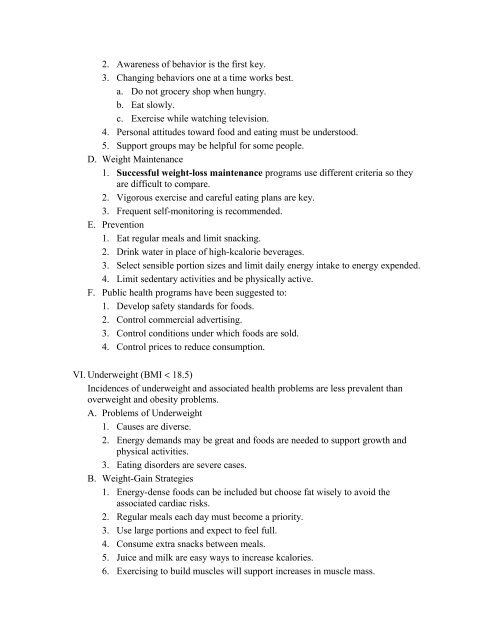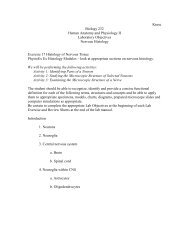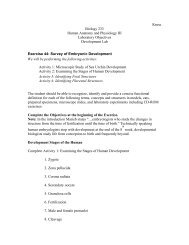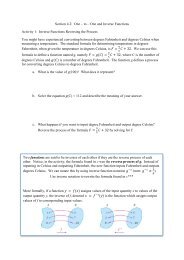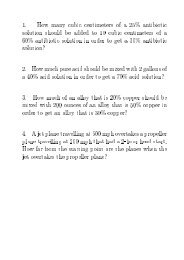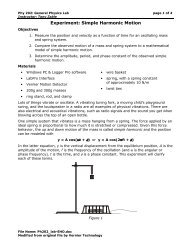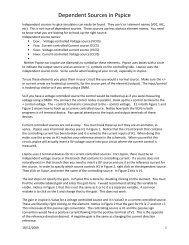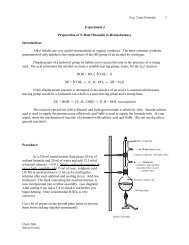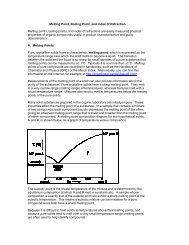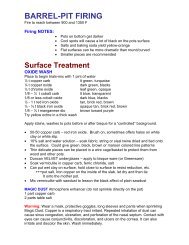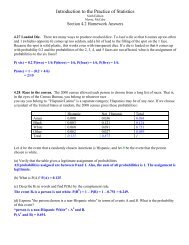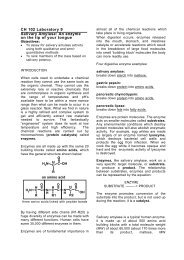Chapter 9 – Weight Management: Overweight, Obesity, and ... - PCC
Chapter 9 – Weight Management: Overweight, Obesity, and ... - PCC
Chapter 9 – Weight Management: Overweight, Obesity, and ... - PCC
Create successful ePaper yourself
Turn your PDF publications into a flip-book with our unique Google optimized e-Paper software.
2. Awareness of behavior is the first key.<br />
3. Changing behaviors one at a time works best.<br />
a. Do not grocery shop when hungry.<br />
b. Eat slowly.<br />
c. Exercise while watching television.<br />
4. Personal attitudes toward food <strong>and</strong> eating must be understood.<br />
5. Support groups may be helpful for some people.<br />
D. <strong>Weight</strong> Maintenance<br />
1. Successful weight-loss maintenance programs use different criteria so they<br />
are difficult to compare.<br />
2. Vigorous exercise <strong>and</strong> careful eating plans are key.<br />
3. Frequent self-monitoring is recommended.<br />
E. Prevention<br />
1. Eat regular meals <strong>and</strong> limit snacking.<br />
2. Drink water in place of high-kcalorie beverages.<br />
3. Select sensible portion sizes <strong>and</strong> limit daily energy intake to energy expended.<br />
4. Limit sedentary activities <strong>and</strong> be physically active.<br />
F. Public health programs have been suggested to:<br />
1. Develop safety st<strong>and</strong>ards for foods.<br />
2. Control commercial advertising.<br />
3. Control conditions under which foods are sold.<br />
4. Control prices to reduce consumption.<br />
VI. Underweight (BMI < 18.5)<br />
Incidences of underweight <strong>and</strong> associated health problems are less prevalent than<br />
overweight <strong>and</strong> obesity problems.<br />
A. Problems of Underweight<br />
1. Causes are diverse.<br />
2. Energy dem<strong>and</strong>s may be great <strong>and</strong> foods are needed to support growth <strong>and</strong><br />
physical activities.<br />
3. Eating disorders are severe cases.<br />
B. <strong>Weight</strong>-Gain Strategies<br />
1. Energy-dense foods can be included but choose fat wisely to avoid the<br />
associated cardiac risks.<br />
2. Regular meals each day must become a priority.<br />
3. Use large portions <strong>and</strong> expect to feel full.<br />
4. Consume extra snacks between meals.<br />
5. Juice <strong>and</strong> milk are easy ways to increase kcalories.<br />
6. Exercising to build muscles will support increases in muscle mass.


